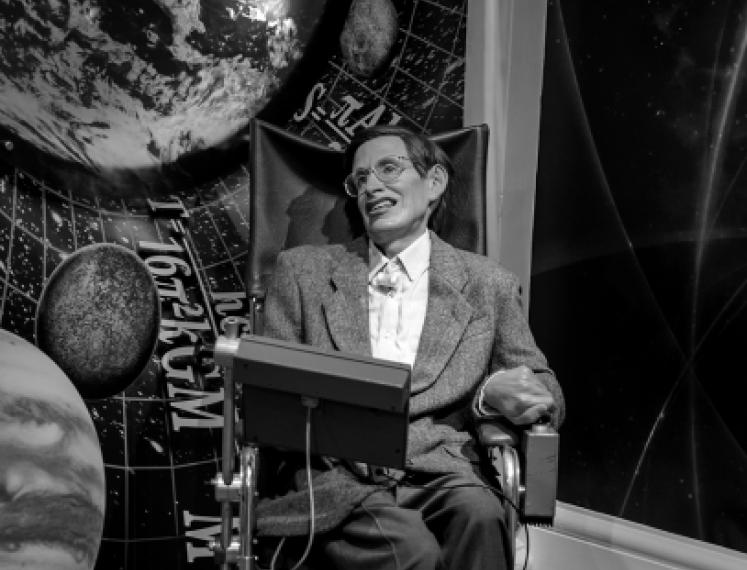
Academy Building
Broerstraat 5
Groningen
Nederland
Stephen Hawking: A Scientific Star?
Stephen Hawking, the world-famous theoretical physicist who passed away this year, was an inspiring scientist. His fame among researchers was founded on his studies about general relativity, quantum gravity and black holes. On top of that, he was an inspiring public figure who published the bestseller A Brief History of Time, in which he mused that the discovery of an overarching theory of everything would allow us to "know the mind of God". Daniel Baumann and Eric Bergshoeff analyse how important Stephen Hawking was to the world of science.
Daniel Baumann is Professor of Theoretical Cosmology at the University of Amsterdam. One of the main goals of his research is to uncover the fundamental origin of the structure of the universe. He is an expert on the theory of cosmological inflation. From 2011-2015, Baumann was a professor at Cambridge University, working as a colleague of Stephen Hawking in the Department of Applied Mathematics and Theoretical Physics. He will explain Stephen Hawking’s main scientific achievements: the realization that black holes aren’t black, the insight that the universe must have started in a big bang, and the proposal that time and space were indistinguishable at the beginning.
Eric Bergshoeff is the de Sitter Professor of Theoretical Physics at the Van Swinderen Institute of Particle Physics and Gravity of the University of Groningen. He occupied postdoc positions in Boston (USA), the ICTP in Trieste and at the CERN particle accelerator in Geneva before he came in 1991 to Groningen. He was a frequent visitor of the Cambridge Department of Applied Mathematics and Theoretical Physics, the working place of Stephen Hawking. His main research interests concern different aspects of gravity, both classical, non-relativistic and quantum. He will talk about Stephen Hawking as an inspirer and a symbol of perseverance.

